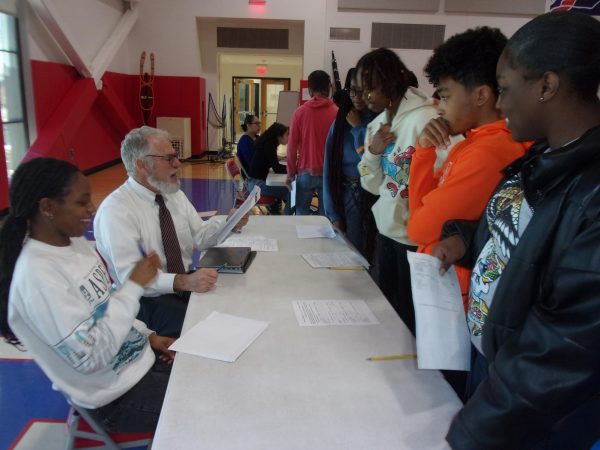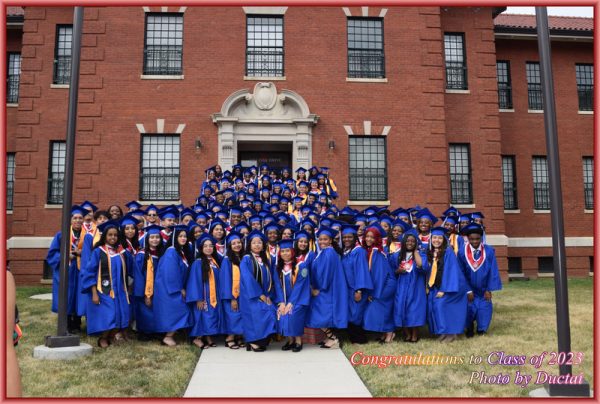Do Metal Detectors Improve Safety?

Going through metal detectors is an experience that many high schoolers go through. It can be a very overwhelming and scary experience, especially for a young child.
At Benjamin Banneker Academic High School, students must walk through a security system to enter the school. It’s a common experience for students to have to take off their coats, take their electronics out of their bags, put their phones in a locker, and walk through a metal detector upon entering the school.
For some, this may not be a big deal, or this may even seem like a good idea, given the impending circumstances of gun violence and mental health in the United States. Yet what are the implications of having complex security systems in high schools?
School security systems are often a topic of discussion in today’s world. School safety is an impending concern with the rise in school shootings across the United States and school violence.
In the District of Columbia, many public schools are known to have metal detectors to ensure school safety. All the while, these metal detectors may disproportionately target different demographics and promote negative biases.
The United States is a country that is highly tolerant regarding gun policy, and when it comes to mental health, there are few social programs to help. School shootings happen way too often in the United States compared to other countries.
The SAS estimates that U.S civilians own 393 million guns; this puts the United States the number one in firearms per capita. U.S. citizens have easy access to guns given these circumstances; kids and children have easy access to these firearms.
Many kids who are involved in school shootings get guns from their homes. This fact puts many schools at risk for school shootings. According to the Gun violence archive, in 2021, there were 690 mass shootings.
The U.S. has had 2,032 school shootings since 1970, and these numbers are increasing. Alarmingly, 948 school shootings have occurred since the Sandy Hook Elementary School tragedy in December 2012. Due to this reality, it makes sense for many schools to have school protection and security programs to ensure the safety of students.
This brings the question of how school security measures may disproportionately place in specific communities. Researchers and the University of Delaware and the University of California conducted a national study of school data.
They found that schools with many impoverished students disproportionately received security measures. The researchers also found that the racial demographic of the student enrollment was essential in choosing schools that would use metal detectors.
Schools with majority-minority populations are likelier to have metal detectors, but is this a racial issue?
Students at Benjamin Banneker Academic High School had some comments about this. We talked to four students that attended the school. Bontu Keba is a junior. She shared that as a middle schooler, she participated in a Maryland school and didn’t have to pass through metal detectors. Upon entering Banneker, she needed clarification about the purpose and felt that the security system was a waste of time.
Elizabeth Brister, another junior that attends the school, comments that she “likes them because they keep us safe and prevent weapons” however, she also adds that the system is highly unorganized.
Keba also shared that the security system is racially motivated because it portrays black people as violent and aggressive. Nevertheless, she believes that all schools need security measures.
Brister agrees with this statement and adds that metal detectors reinforce negative stereotypes. In addition, she emphasizes the importance of using metal detectors only as a preventative measure.
Another interviewee was Taylor Wright, a freshman at Banneker. She believes metal detectors are a great security measure but should target only some groups. She adds that security measures could be better and be taken more seriously.
All in all, there is no harsh evidence that security measures target specific groups of people. However, given this country’s circumstances and history, it feels like it. Students express that security systems seem to be in schools that minorities attend.
During these times, schools should work to make their students feel safe, and while security measures can be practical other things like support systems, helpful staff, mental health resources, and more can work to build a safer environment.
At the same time, schools should also work to make their students feel represented and appreciated.







